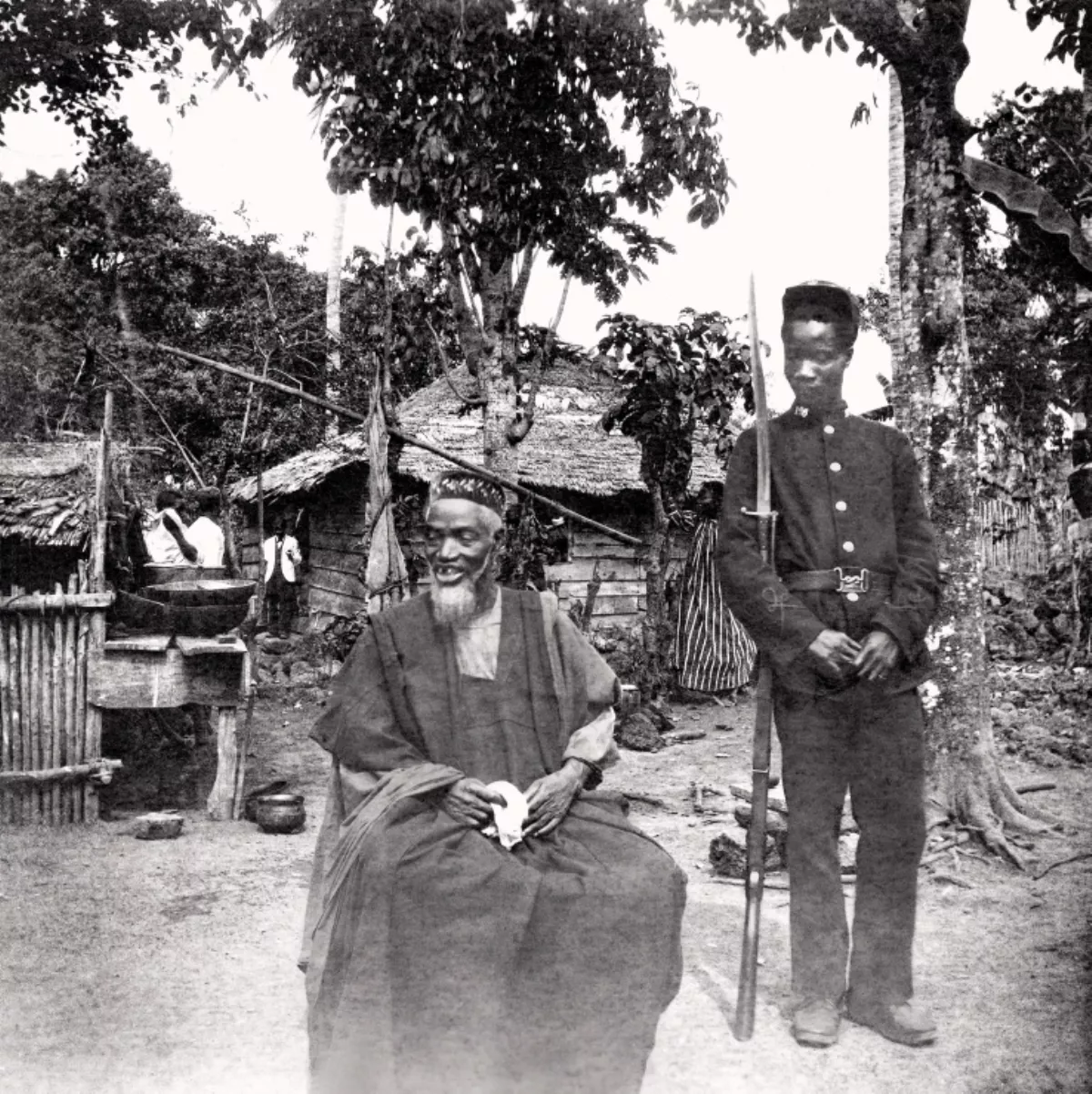 1.
1. Bai Bureh was a Sierra Leonean ruler, military strategist, and Muslim cleric, who led the Temne and Loko uprising against British rule in 1898 in Northern Sierra Leone.

 1.
1. Bai Bureh was a Sierra Leonean ruler, military strategist, and Muslim cleric, who led the Temne and Loko uprising against British rule in 1898 in Northern Sierra Leone.
Bai Bureh was born in 1840 in Kasseh, a village near Port Loko in Northern Sierra Leone.
Bai Bureh's father was a Muslim cleric and an important Loko chief and his mother was a Temne trader from Makeni.
When Bureh was a young man his father sent him to the small village of Gbendembu in northern Sierra Leone, where he was trained to become a warrior.
Bai Bureh successfully fought and won wars against other villagers and tribal leaders who were against his plan to establish correct Islamic and indigenous practices throughout Northern Sierra Leone.
In 1882, Bai Bureh fought against the Susu people from French Guinea who invaded Kambia, a town in northern Sierra Leone.
Bai Bureh's fighters defeated the Susu, pushed them back into French Guinea and returned the land to the local Kambia people.
In 1886, Bai Bureh was crowned as the chief of Northern Sierra Leone.
Bai Bureh refused to recognise a peace treaty the British had negotiated with the Limba without his participation; and on one occasion, his warrior fighters raided their way across the border into French Guinea.
Bai Bureh refused to recognise the hut tax imposed by the colonial government.
Bai Bureh did not believe the Sierra Leonean people had a duty to pay taxes to foreigners and he wanted all Britons to return to Britain and let the Sierra Leoneans solve their own problems.
In 1898, Bai Bureh declared war on the British in Sierra Leone.
One of the most notable Creole people who was killed by Bai Bureh's warriors was the trader John "Johnny" Taylor, who was killed in his house in Northern Sierra Leone.
Bai Bureh had the advantage over the forces of the colonial government for several months of the war.
Bai Bureh finally surrendered on 11 November 1898, when he was tracked down in swampy, thickly vegetated countryside by a small patrolling party of the newly organised West African Regiment in Port Loko.
Bai Bureh was taken under guard to Freetown, where crowds gathered around his quarters day and night to gain a glimpse of him.
Bai Bureh was treated as a political prisoner and was given limited freedom.
The fact that Bai Bureh was not executed after his capture has led some historians to claim that this was due to admiration for his prowess as an adversary to the British.
Bai Bureh had pursued the war not just with sound military brain but a sense of humour.
When Governor Cardew offered the princely sum of 100 pounds as a reward for his capture, Bai Bureh had reciprocated by offering the even more staggering sum of 500 pounds for the capture of the Governor.
Bai Bureh is pictured on several Sierra Leonean paper bills.